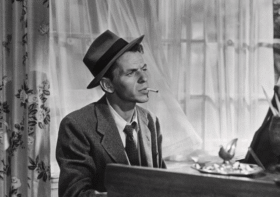Is Dressing Well Just Privilege?

As someone who writes about clothes, I think often about how one can step up their style in any setting, whether it’s business or pleasure, formal or casual. Broadly speaking, this often takes the form of “dress nicer” and includes things like wearing a button-down shirt instead of a t-shirt, a sweater instead of a sweatshirt, or what have you.
As someone who also writes about the dynamics of family and the father’s impact on children, I regularly draw upon my own upbringing, plumbing the recesses of my memory for nuggets or tidbits that may help color my advice.
It was during one of these recent reminisces that a particular thought struck me: is dressing well just a form of privilege? And by “privilege” I’m not talking about race or gender. I’m talking about wealth (or the lack there of). More specifically: is the freedom to choose to dress “better” (in the ways we menswear writers frequently recommend) a luxury only those of certain economic means can attain?
Now, I hear you thinking: “Richard, that’s obvious. Of course it usually takes money to dress well and those who have more money have more of an ability to do it.” I agree; that’s obvious. But that’s not really what I’m getting at. What I mean is that some people can afford to buy a suit, some nice shirts, or good shoes but they don’t have the financial flexibility beyond that to wear those things outside of only a handful of very specific circumstances. Circumstances for which those items were probably originally purchased, like job interviews, funerals, or weddings. This automatically limits their wardrobe’s versatility. Not only was purchasing those things probably a stretch, but they may not be confident they will ever be able to replace them or repair them if they became damaged. Nicer clothes are usually more expensive, clearly. It’s certainly possible to find nice clothes at a steep discount, but that requires another thing poor people don’t have much of: time. Unfortunately, fear and uncertainty are byproducts of financial instability so it’s understandable that some people choose to stick their navy blazers in the closet and only pull them out for special occasions. It cannot be as versatile because it needs to be saved. That navy blazer NEEDS to last the rest of their life.
This is what made me think of all this…
About 5 or 6 years ago my mother was moving out of the house I had grown up in (not the house we lived in when I was really little, but the house we were in since I was about 11). Among the odds and ends that had accumulated over the years I found the box containing my mom and dad’s wedding China (the Tiffany dishes they were gifted when they got married in 1970).
“These are so cool!”, I said to my mom. “How come I have never seen them?”
She replied, “They’ve never been used.”
This is something I’ve noticed from a lot of people and often of people who don’t have or don’t come from money. The “it’s too nice to use” mentality. If they obtain something nicer than they would buy for themselves, it ends up on a shelf collecting dust for 50 years. It’s not that they think it’s better to never use something, they don’t want to use it for fear of something happening to it, because they don’t believe they will ever have something that nice ever again. As someone with a certain level of disposable income, I feel confident that if I spill olive oil on my Oxford cloth button-down shirt I can just buy another one. Poor people can’t do that, so the OCBD stays in the closet while the free t-shirt they got 10 years ago is their daily driver.
And I get it. I really do. When I first moved out in my early 20s I was living with some roommates in NYC. This was right before the Great Recession and I had a low-paying entry level corporate job. The job paid me so poorly that I would make sure to only go to the grocery store when a particular deli attendant was working because I knew he had a heavy hand with the sliced turkey. That extra few slices meant I had lunch for Friday. Otherwise I resorted to the free honey packets in the employee kitchen. At this time in my life would I have busted out my only suit and dress shirt when it wasn’t absolutely necessary? Even the thought of doing so filled me with anxiety. If anything were to happen to it, it would have been a catastrophe since I would have been incapable of fixing it or buying something else. And then what if I needed it for a work function? Or an interview? I would have been screwed.
It’s from a place of privilege now that I can play with my kids in a $100 sweater. It’s from a place of privilege that I don’t have to be precious about the “nice” things in my wardrobe. It’s from a place of privilege that I can say to you “wear a sport coat more often.” This isn’t to discount the fact that I have worked hard and built a comfortable life for myself since my lean years in the city, but it illustrates the fact that we all find ourselves in different circumstances at different points in our lives. And those circumstances mean different priorities.
I don’t know what the solution is. Acknowledging that the privilege exists is a start. Maybe it’s just the reality that what I discuss on this site will be out of the realm of possibly for some. I guess that’s the case with any specialty site, but really examining the “why” forces one to confront some uncomfortable truths.



